China's sacrifices should always be remembered
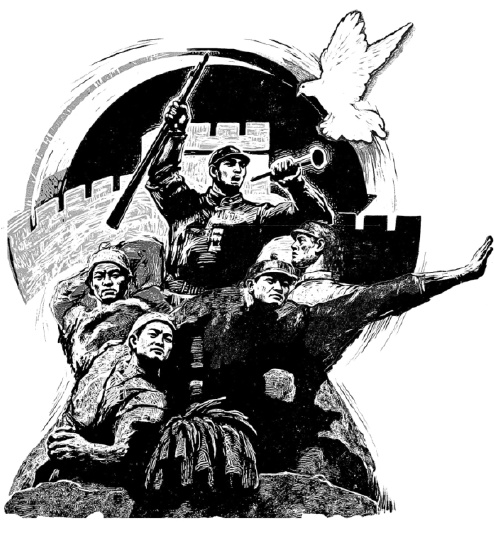
MA XUEJING/CHINA DAILY。
Editor's note:。With global tensions rising and regional conflicts showing no signs of ending, it has become more urgent than ever to understand the root causes of war. Wang Jianlang, president of the Chinese Society for the History of the War of Resistance Against Japanese Aggression, reflects on some overlooked aspects of World War II — its real starting point, China's under-recognized contribution, and why the principle of "indivisible peace" remains vital today. Wang also warns against populism and historical amnesia in an in-depth conversation with China Daily's Liu Jianna for Dialogues with Thinkers, China Daily's high-end interview program. Following are excerpts from the interview:。
Q1: How should the world reflect on World War II amid the ongoing regional conflicts in order to prevent new wars?
A: We are witnessing a turbulent era of global change. While we may not yet be on the brink of a third world war, the current global environment is arguably the most chaotic in the 80 years since the end of World War II. International rules and norms are being repeatedly violated, increasing the risks of a global war.。
In such times, it is crucial to learn from the experiences of World War II. The prelude to that war showed how incremental aggression, if unchecked, could spiral into a global catastrophe. The world failed to respond decisively to early acts of aggression, which ultimately emboldened the Axis powers. Japan's occupation of Northeast China, Germany's expansion into Austria and Czechoslovakia were all warning signs.。
Today, our ability to prevent another global war hinges on our willingness to uphold international norms, support multilateral institutions, and collectively and decisively respond to emerging threats. History warns us that inaction and appeasement are often enablers of war.。
Q2: Why should we reconsider the starting point of World War II?
A: Traditionally, World War II is considered to have begun in 1939 with Germany's invasion of Poland. This Euro-centric perspective has dominated mainstream history. However, decades of research suggest the war had two major origins: Europe and East Asia.。
Japan's invasion of Northeast China in 1931 — commonly known as the "Sept 18 Incident" — was a prelude to World War II. But the world at that time failed to recognize its global implications, which led to a long and brutal campaign that eventually evolved into a full-scale war in 1937.。
If we consider the Axis powers collectively as the initiators of World War II, then Japan's invasion of Northeast China in 1931 marked the opening act of the conflict, while its full-scale invasion of China in 1937 should be recognized as the true starting point of the war. Recognizing this broader timeline will not diminish European experiences but rather complete the full global picture of the war, because World War II was not a single-front conflict but a worldwide fight against fascism, shaped by multiple triggers and theaters of violence.。
Q3: What key lessons from World War II should we always remember?
A: One of the most important lessons is the danger of appeasement and inaction in the face of early aggression. Before 1937, as Japan escalated its aggression into a full-scale invasion of China, the international community largely limited its response to expressions of sympathy, offering little in the way of concrete support. The lack of action to curb Japan's ambitions failed to deter Japan's expansion, which continued to intensify in the following years.。
Similarly, in Europe, the 1938 Munich Agreement — where Great Britain and France conceded Czechoslovak territory to Nazi Germany — demonstrated how granting repeated concessions could backfire. Germany and Japan both interpreted these diplomatic compromises as a green light to intensify their aggressive campaigns.。
Another crucial lesson is the concept of "peace is indivisible". In the 1930s, major powers such as the United States viewed regional wars in Asia as irrelevant to their own national security. It wasn't until the industrial Western powers were attacked and a global alliance was formed that the importance of world peace became undeniable.。
This idea is part of the foundation of international relations. The threat to peace in one region must be seen as a threat to global peace and stability, which warrants collective and timely action. Only by adhering to this principle can we prevent regional conflicts from turning into global wars.。
Q4: How did China contribute strategically to the global anti-fascist war?
A: China's role in the global fight against fascism has often been undervalued, partly because it was not an industrial power like the US, Great Britain or the Soviet Union. Nonetheless, China's strategic contributions were immense.。
Despite the vast disparity in economic and military capabilities — China's GDP was less than a quarter and steel production less than 1 percent of Japan — China resisted Japanese aggression for 14 years, which includes eight years of full-scale war. It was a prolonged and costly resistance.。
China tied down more than 1 million Japanese troops on the Asian mainland, significantly easing pressure on Allied forces in the Pacific. Nearly 700,000 Japanese troops were engaged in Northeast China, preventing Japan from launching attacks on the Soviet Union's eastern front. This protected the Soviet Union in the east while it engaged in a brutal conflict with Nazi Germany in the west.。
Moreover, Chinese forces fought in foreign theaters such as Myanmar, contributing to the broader Allied victory. These sacrifices and strategic contributions earned China recognition as one of the "Big Four" Allied powers and a permanent seat in the UN Security Council. China's endurance and resistance were pivotal to the global outcome of the war.。
Q5: Why should the 1937 Lugou Bridge Incident be seen as a starting point of World War II?
A: While 1931 marked the beginning of a regional war of resistance against Japanese aggression, the Lugou Bridge Incident on July 7, 1937, signaled the onset of full-scale war between China and Japan.。
If we define World War II as a global war between expansionist powers and international resistance, then the 1937 invasion stands as a starting point of the war. Recognizing this helps correct the imbalance in Western narratives on the war, which often sideline the main Eastern battlefield's importance.。
By incorporating this perspective, we acknowledge that the war was not West-centric but part of a broader global breakdown of peace. It allows for a more nuanced understanding of the interconnectedness of global conflicts, and ensures that the experiences of Asian nations are not overlooked in the history of World War II.。
Q6: How should we see the roles of the Communist Party of China and Kuomintang during the Chinese People's War of Resistance Against Japanese Aggression?
A: Both the CPC and the KMT played vital roles in resisting Japanese aggression, operating on two major fronts: the enemy's rear and the main battlefield. Their contributions were complementary, even if political tensions between them persisted.。
When honoring wartime sacrifices, we should focus on the fact that all Chinese forces, regardless of their political affiliation, fought to defend the nation. Both the CPC and KMT soldiers are part of our shared memory of resistance and deserve equal recognition for their bravery. It's also important to resist overly politicized historical narratives that pit one side against the other. The reality is that their coordinated efforts helped sustain the national resistance despite extreme hardship. The legacy of these joint efforts should be a symbol of unity rather than division.。
Q7: Why must we remain vigilant against populist rhetoric and political manipulation?
A: World War II was not only a military conflict but also a political and psychological conflict. Both Nazi Germany and imperial Japan used mass propaganda to stir ultra-nationalism and justify their expansionist policies.。
Even today, in the age of information, populist leaders can distort facts and manipulate public sentiment. When emotions override reason, democratic systems can become vulnerable, and history shows how dangerous that can be.。
Preventing the resurgence of authoritarianism requires constant vigilance against those who use ultra-nationalism, fear and populism to polarize societies. The example of Hitler reminds us of how unchecked emotional mobilization can disable societal checks and balances, and lead to disaster.。
In this era dominated by social media echo chambers and algorithm-driven content, the danger is even greater. Populism can thrive in disinformation-prone environments, making it all the more essential to promote critical thinking and independent journalism.。
Q8: How did World War II lay the groundwork for today's global governance system?
A: After the end of World War II, the international community sought to prevent a recurrence of another global war by establishing a robust system of collective security, most notably through the United Nations. The concept of peace is indivisible became institutionalized; as a result any regional conflict can now be discussed at the UN Security Council.。
This legacy is not just symbolic. It reflects the hard-earned lesson that diplomacy and dialogue should take precedence over unilateral military actions. Today, maintaining the postwar world order is essential to maintain global stability.。
The idea that all conflicts — no matter how localized — can escalate and affect global peace shaped institutions like the UN and principles like the Responsibility to Protect. These frameworks are under strain today but remain vital.。
Recommitting to the spirit of postwar cooperation requires reforming and strengthening global institutions to reflect 21st-century realities, without losing sight of the lessons that led to their formation.。
Q9: Why has China's World War II narrative often been underrepresented globally?
A: Several factors have contributed to this narrative. First, during World War II, China was not an industrial power and, unlike its Western allies, lacked global influence. As a result, its contributions, though strategic and prolonged, did not receive equal attention in postwar narratives.。
Second, the dominant Euro-American focus in World War II historiography has often overlooked the significance of the main Eastern battlefield. But recent decades have seen a growing recognition of China's central role in resisting fascism.。
And third, ideological tensions during the Cold War further distorted historical representation. China's role was either politicized or sidelined depending on the prevailing geopolitical narrative. Only in recent decades has there been a scholarly shift toward a more balanced global account of World War II. Reframing historical narratives to include multiple perspectives is not about rewriting history; it's about completing it.。
Q10: Why does redefining the World War II narrative matter in today's geopolitical landscape?
A: Historical narratives shape contemporary perceptions and policies. Recognizing China's role in World War II reinforces its legitimacy as a founding member of the international order. It also highlights the importance of non-Western contributions to global peace.。
At a time when multilateralism is under strain and nationalism is on the rise, a more inclusive World War II narrative reminds us of the shared sacrifices that led to the formation of the current global system, and why it must be protected.。
Moreover, as new conflicts occur and historical accounts are often invoked to achieve political ends, a clearer understanding of how wars began — and how they were won — can guide better decision-making. Accurate, inclusive history is a cornerstone of peace and cooperation.。
To build a bright global future, we require a collective memory which should recognize that World War II was not only fought and won in Europe, but across continents, with shared sacrifices and the common hope for peace.。
Wang Jianlang, president of the Chinese Society for the History of the War of Resistance Against Japanese Aggression. The views don't necessarily represent those of China Daily.。
If you have a specific expertise, or would like to share your thought about our stories, then send us your writings at opinionchinadaily.com.cn, and commentchinadaily.com.cn.。
(责任编辑:热点)
-
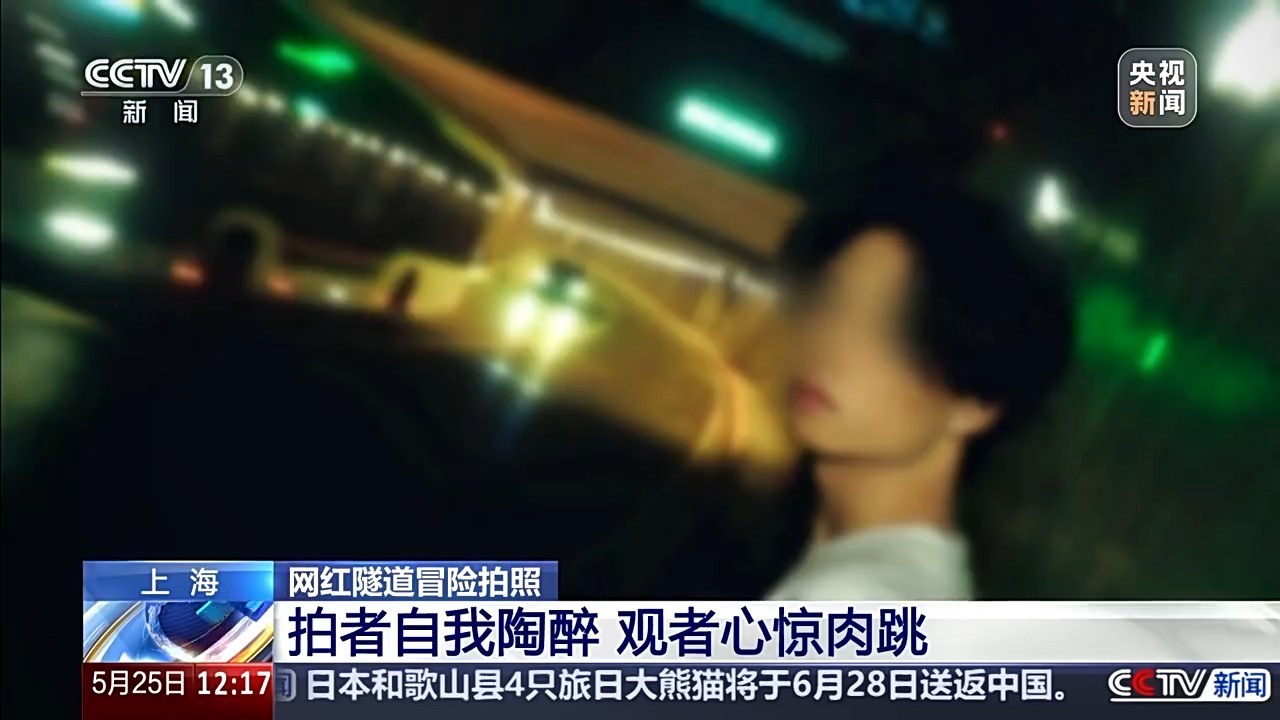 近来,上海长宁区新华路地道因被传“十分具有电影感”成为网红打卡地,不少网友为了寻求“出片”,冒险进入明令制止行人通行的地道摄影。对此,上海长宁交警部门打开专项整治,消除路途安全隐患。拍者自我陶醉 观者
...[详细]
近来,上海长宁区新华路地道因被传“十分具有电影感”成为网红打卡地,不少网友为了寻求“出片”,冒险进入明令制止行人通行的地道摄影。对此,上海长宁交警部门打开专项整治,消除路途安全隐患。拍者自我陶醉 观者
...[详细]
-
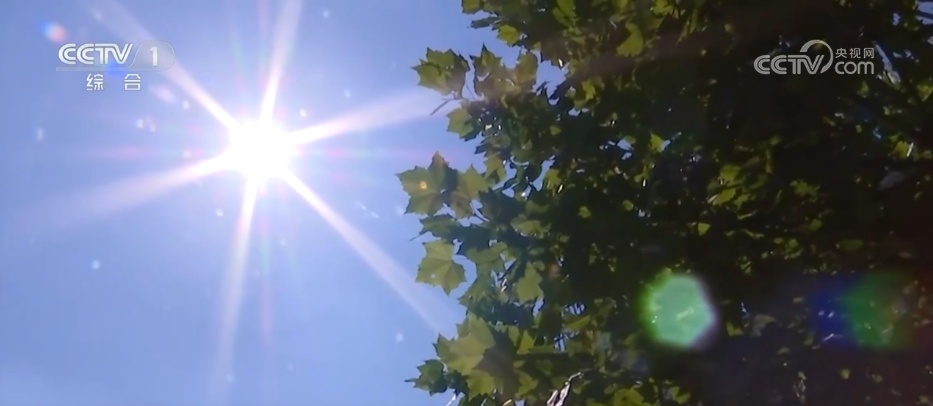 央视网音讯:近期,我国中东部区域继续高温气候。中央气候台估计,未来一周,华北南部、黄淮、江汉及陕西关中等地将继续35℃以上高温,局地超越40℃,部分区域或许挨近或打破前史同期极值。此外,下周起,四川盆
...[详细]
央视网音讯:近期,我国中东部区域继续高温气候。中央气候台估计,未来一周,华北南部、黄淮、江汉及陕西关中等地将继续35℃以上高温,局地超越40℃,部分区域或许挨近或打破前史同期极值。此外,下周起,四川盆
...[详细]
-
 新华社北京7月11日电记者朱婉君)“展开全球文明对话不仅是件功德,更是有必要之举。”肯尼亚前内阁部长拉斐尔·图朱11日在参与全球文明对话部长级会议期间承受记者采访时表明,这有助于人们从头将目光聚集于真
...[详细]
新华社北京7月11日电记者朱婉君)“展开全球文明对话不仅是件功德,更是有必要之举。”肯尼亚前内阁部长拉斐尔·图朱11日在参与全球文明对话部长级会议期间承受记者采访时表明,这有助于人们从头将目光聚集于真
...[详细]
-
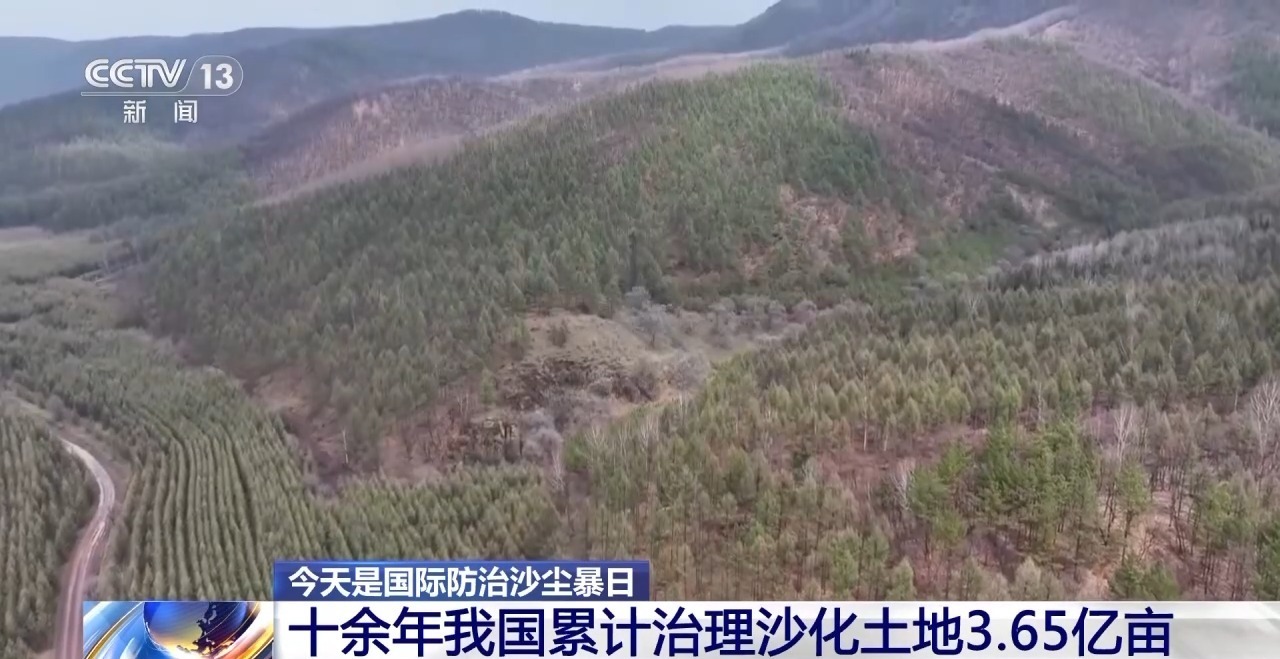 今日12日)是世界防治沙尘暴日,本年我国的宣扬主题为:“防治沙尘灾祸 一起看护蓝天”。十余年我国累计管理沙化土地3.65亿亩。我国一直高度重视沙尘暴防治作业,1978年同意并施行“三北”工程,尽力康复
...[详细]
今日12日)是世界防治沙尘暴日,本年我国的宣扬主题为:“防治沙尘灾祸 一起看护蓝天”。十余年我国累计管理沙化土地3.65亿亩。我国一直高度重视沙尘暴防治作业,1978年同意并施行“三北”工程,尽力康复
...[详细]
-
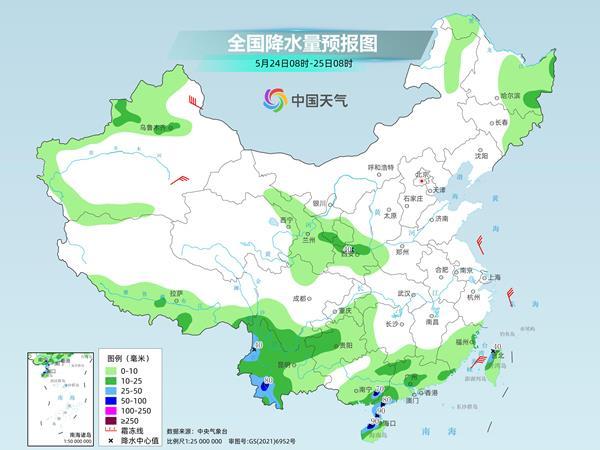 周末两天5月24日至25日),南边降雨削减、削弱,部分区域有大雨或暴雨,地质灾祸具有滞后性,仍需留意防备。27日至29日,南边新一轮降雨开展,大众请重视挨近预告信息。受阴雨气候影响,未来7天,南边大部
...[详细]
周末两天5月24日至25日),南边降雨削减、削弱,部分区域有大雨或暴雨,地质灾祸具有滞后性,仍需留意防备。27日至29日,南边新一轮降雨开展,大众请重视挨近预告信息。受阴雨气候影响,未来7天,南边大部
...[详细]
-
 新华社石家庄7月10日电题:喜峰口战争:大刀队的热血传奇。新华社记者冯维健。河北唐山迁西县喜峰雄关大刀园内,一口钢筋水泥浇筑的“红缨大刀”横立。“同学们,你们知道这把大刀背面的故事吗?”暑假伊始,一群
...[详细]
新华社石家庄7月10日电题:喜峰口战争:大刀队的热血传奇。新华社记者冯维健。河北唐山迁西县喜峰雄关大刀园内,一口钢筋水泥浇筑的“红缨大刀”横立。“同学们,你们知道这把大刀背面的故事吗?”暑假伊始,一群
...[详细]
-
 新华社伦敦7月11日电记者马邦杰)11日在首先进行的一场温网男单半决赛中,西班牙名将阿尔卡拉斯以3:1打败美国选手弗里茨,晋级决赛,他将向温网三连冠建议冲击。两边在第四盘都无破发,被逼进行抢七决战。决
...[详细]
新华社伦敦7月11日电记者马邦杰)11日在首先进行的一场温网男单半决赛中,西班牙名将阿尔卡拉斯以3:1打败美国选手弗里茨,晋级决赛,他将向温网三连冠建议冲击。两边在第四盘都无破发,被逼进行抢七决战。决
...[详细]
-
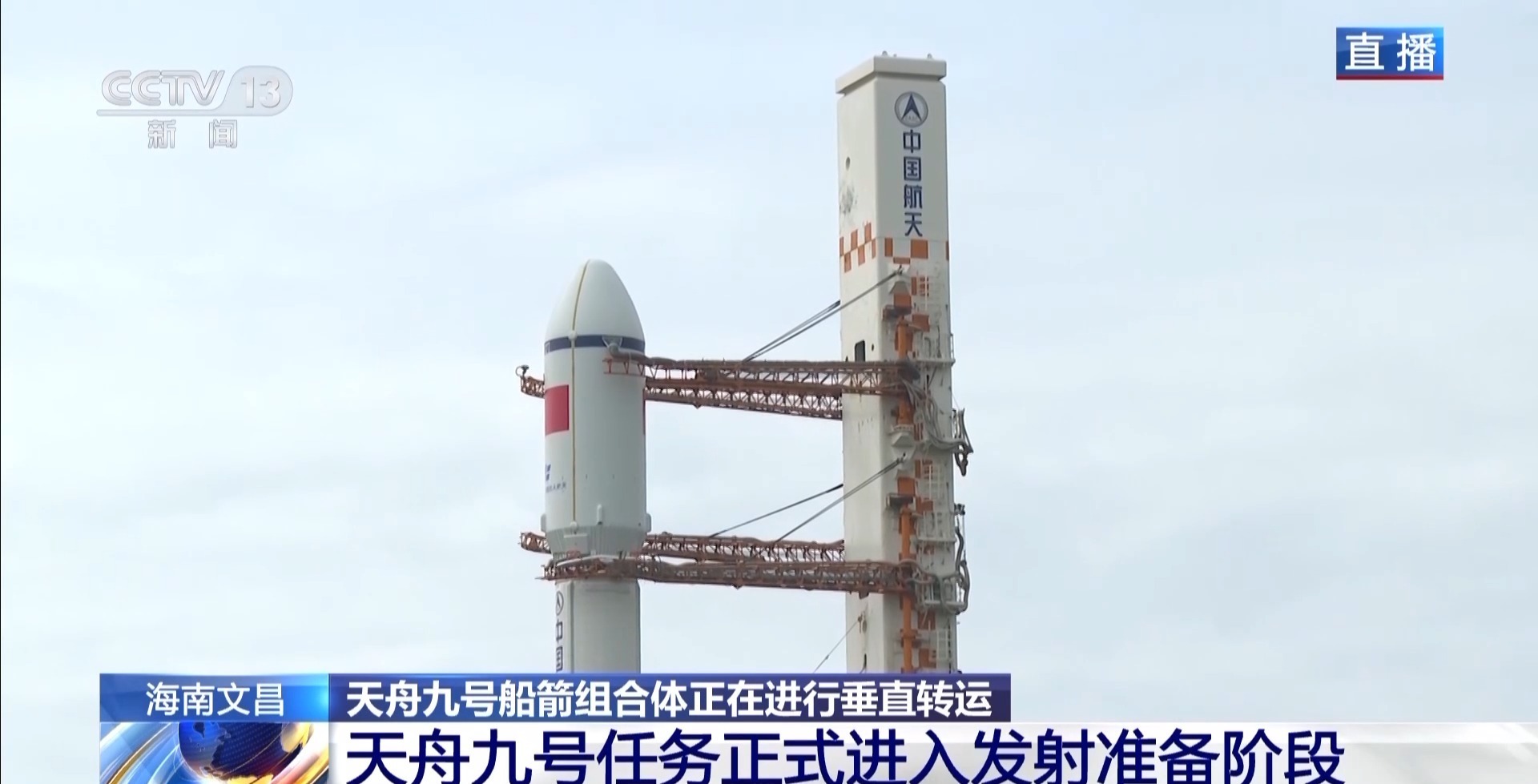 今日12日)早上,在海南文昌航天发射场,天舟九号货运飞船和长征七号遥十运载火箭组合体开端进行笔直转运。今日的笔直转运作业从早上8时正式开端,搭载着天舟九号货运飞船的长征七号遥十运载火箭,在活动发射渠道
...[详细]
今日12日)早上,在海南文昌航天发射场,天舟九号货运飞船和长征七号遥十运载火箭组合体开端进行笔直转运。今日的笔直转运作业从早上8时正式开端,搭载着天舟九号货运飞船的长征七号遥十运载火箭,在活动发射渠道
...[详细]
-
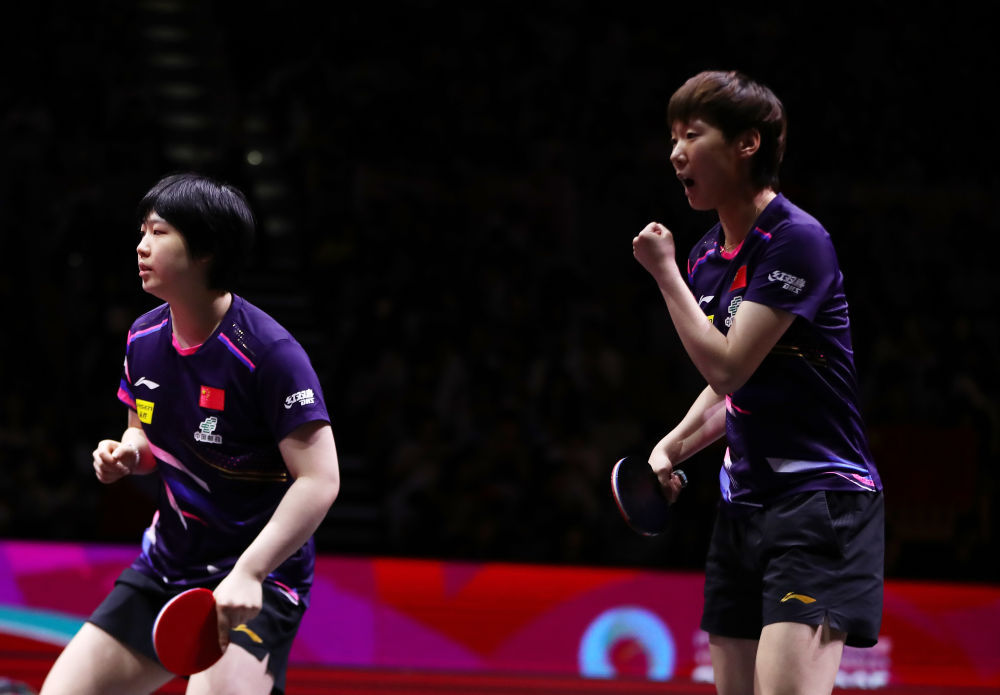 5月25日,在卡塔尔多哈举办的2025国际乒乓球锦标赛女子双打决赛中,我国组合王曼昱/蒯曼3比0打败跨国组合波尔卡诺娃奥地利)/斯佐科斯罗马尼亚),夺得冠军。 ↑王曼昱右)/蒯曼在竞赛中庆祝得分。新华
...[详细]
5月25日,在卡塔尔多哈举办的2025国际乒乓球锦标赛女子双打决赛中,我国组合王曼昱/蒯曼3比0打败跨国组合波尔卡诺娃奥地利)/斯佐科斯罗马尼亚),夺得冠军。 ↑王曼昱右)/蒯曼在竞赛中庆祝得分。新华
...[详细]
-
 6月以来,高温气候席卷北半球,特别欧洲多国迎来多轮高温炙烤气候。本年入夏以来,北半球多国,特别是欧洲多国已遭受了多轮高温气候。欧洲多国发布高温预警,其间西班牙、法国等受影响尤为严峻,部分区域气温打破4
...[详细]
6月以来,高温气候席卷北半球,特别欧洲多国迎来多轮高温炙烤气候。本年入夏以来,北半球多国,特别是欧洲多国已遭受了多轮高温气候。欧洲多国发布高温预警,其间西班牙、法国等受影响尤为严峻,部分区域气温打破4
...[详细]

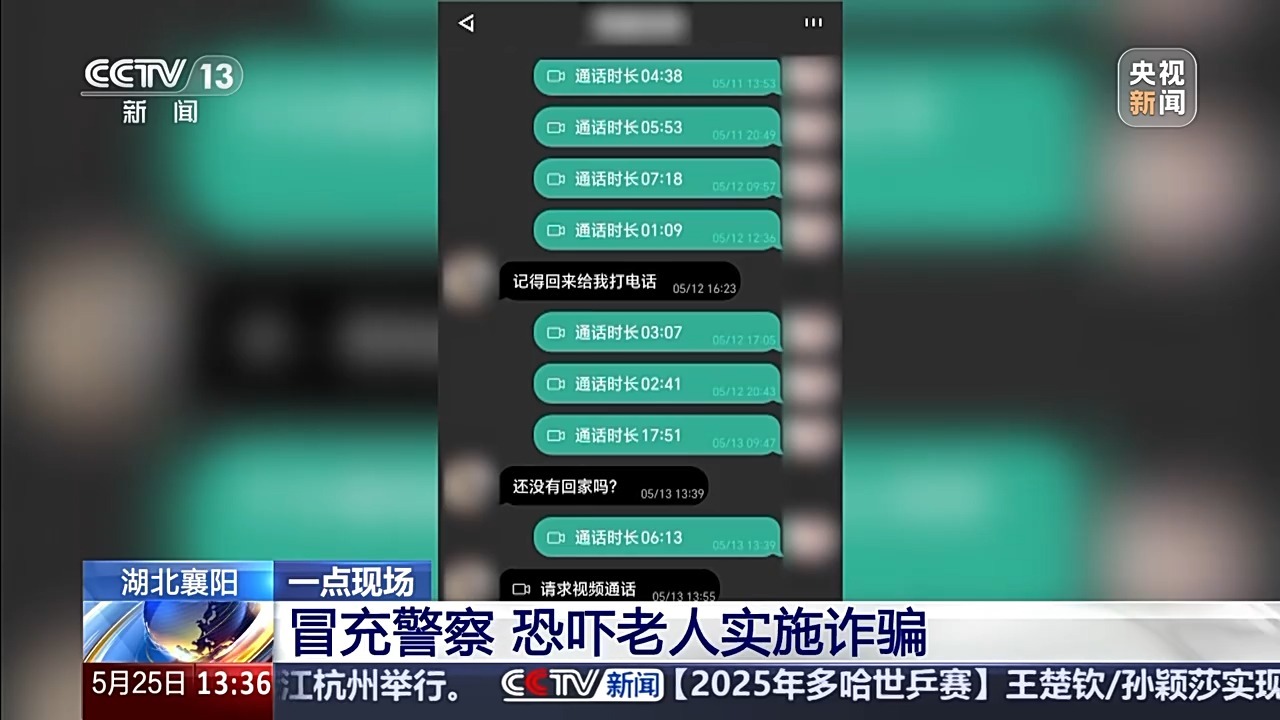 真假差人坚持!真差人霸气责问 演出教科书式“反诈现场”
真假差人坚持!真差人霸气责问 演出教科书式“反诈现场”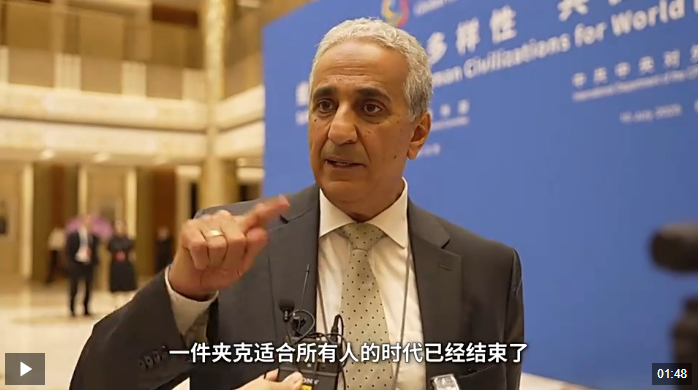 “一件夹克合适所有人的年代现已完毕” 多国代表热议不同文明共处之道
“一件夹克合适所有人的年代现已完毕” 多国代表热议不同文明共处之道 2025年全国残疾人射箭锦标赛在京开赛
2025年全国残疾人射箭锦标赛在京开赛 世联赛美国站3:1打败加拿大队,中国女排提早晋级总决赛
世联赛美国站3:1打败加拿大队,中国女排提早晋级总决赛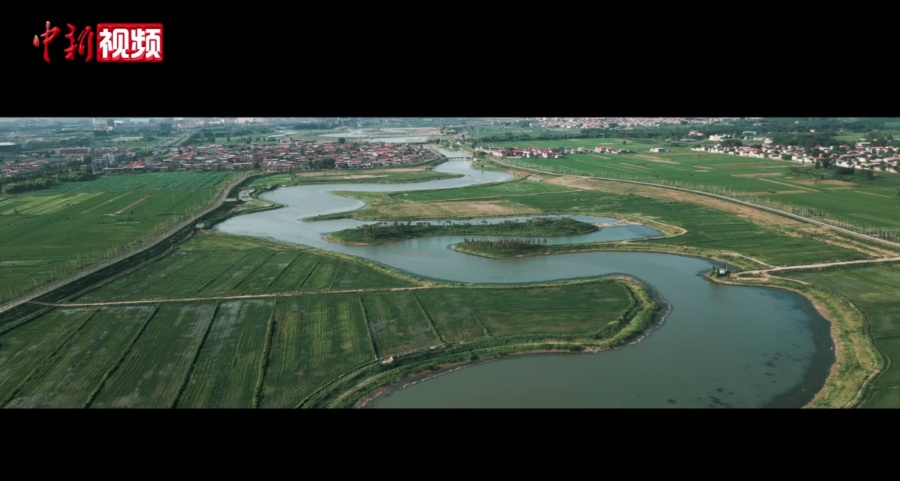 小城大业丨一个小县城怎么造就年产1.45亿辆的童车“骑”迹?
小城大业丨一个小县城怎么造就年产1.45亿辆的童车“骑”迹?
